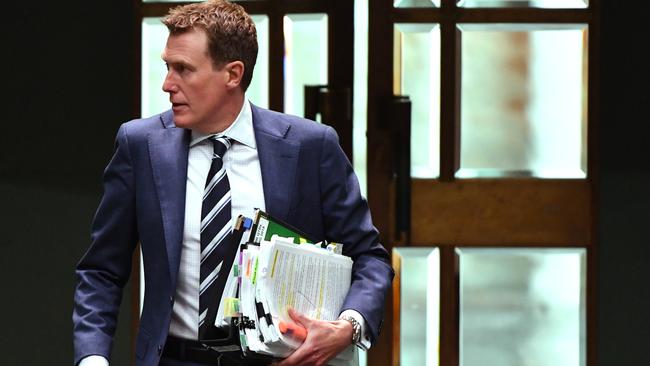No one is safe when politicians decide what’s news

Many nations have enacted stringent national security laws since the September 11, 2001, terrorist attacks in the US. These respond to the threat of terrorism and include exceptional measures such as the USA PATRIOT Act and the introduction of control orders in the United Kingdom. Australia, nonetheless, stands out from the crowd. We have gone further than any other liberal democracy in the number of security laws enacted (82 at last count), and in their impact on democratic values. Too often, these laws demonstrate a willingness to shut down debate and to shield government from damaging, embarrassing information.
The federal government has recognised this belatedly. Home Affairs Minister Peter Dutton has issued a ministerial direction to the Australian Federal Police that they consider press freedom before investigating journalists who publish secret material.
Attorney-General Christian Porter also has instructed federal prosecutors that they must obtain his consent before charging journalists under certain national security laws.
These directions miss the point. They make it less likely that journalists will be jailed, but only where they are protected through ministerial intervention.
The liberty of journalists should not depend on the people who may be harmed and angered by bringing information of wrongdoing to light. Journalists should not have to second-guess how the government will respond to their work, and whether a minister will use their discretion to protect them from prosecution. It compromises the independence of journalists and opens new avenues by which their work may be subject to political interference.
The directions by Dutton and Porter also are notable for who they do not protect.
There is no suggestion of a ministerial shield for whistleblowers who reveal information to journalists about corruption, misconduct or the misuse of public power. Whistleblowers have been left out in the cold and remain subject to the full force of the law.
This enables the government to say it is protecting journalists, despite at the same time doing nothing to protect the people on whom the work of journalists depends. This undercuts any suggestion that these directions are serious attempts to preserve press freedom. The ministerial directions also fail to touch the underlying law that exposes journalists and whistleblowers to prosecution and jail time.
These laws criminalise the revealing of secret information, whether it be by a whistleblower to a journalist, or a journalist to the public. The laws prioritise government secrecy and typically provide no exception for reporting in the public interest.
Many of these laws have no place in other nations. In fact, other nations have gone in the opposite direction in taking positive steps to protect basic freedoms. Every democracy apart from Australia provides legal protection for freedom of speech in a national bill of rights or human rights act.
In the US, the first amendment to its constitution also denies congress the ability to abridge freedom of the press. The starting point in the US is that raids on newsrooms are unlawful. British law also recognises the value of “journalistic material”. Unlike in Australia, this cannot be seized under the ordinary search warrant process. Instead, a special procedure is required whereby a judge rules on whether access to the material is justified.
This might be because other methods of obtaining the information have been unsuccessful and it is in the public interest that the journalistic material be handed over so an investigation can be conducted.
Other nations such as Canada and New Zealand have enacted shield laws to preserve the anonymity of journalists’ sources. Australia also has enacted shield laws, but these are of limited use and can be bypassed using new powers found in national security legislation. Agencies can identify a source by accessing metadata from the phone and other devices of a journalist. A warrant is required, but the journalist need not be notified. The US, Britain, Canada and New Zealand, four members of the Five Eyes intelligence community, have laws in place that demonstrate a regard for and sensitivity to freedom for speech and the work of journalists. We’re the exception.
We have enacted laws for the prosecution and jailing of journalists and whistleblowers, and we alone have failed to provide positive protection for freedom of speech.
It appears that our leaders simply are not interested in providing the protection needed. Instead, they have been ready to invoke national security and other interests to undermine the work of the media and the free speech of citizens more generally.
The result has been a sustained assault on democratic freedoms in Australia. The last time we experienced this was during the great world wars of the past century. Those conflicts, though, were of more limited duration and involved extreme but temporary measures that ceased with the end of hostilities.
The situation today is more concerning. Our parliament continues to enact law after law that redefine the powers of our institutions and the relationship between citizens and the state. The rights of Australian citizens are one casualty, as is freedom of the press. We must escape the cycle by which laws are enacted in the name of national security, only to undermine the values they are meant to preserve and protect.
George Williams is dean of law at the University of NSW.



Australia has been described rightly as the world’s most secretive democracy. Other nations have reacted with surprise and alarm at our raids on media offices, and that our parliament has passed so many laws that stifle freedom of speech and of the press. We have developed a reputation for enacting security laws more suited to an authoritarian state than a liberal democracy.